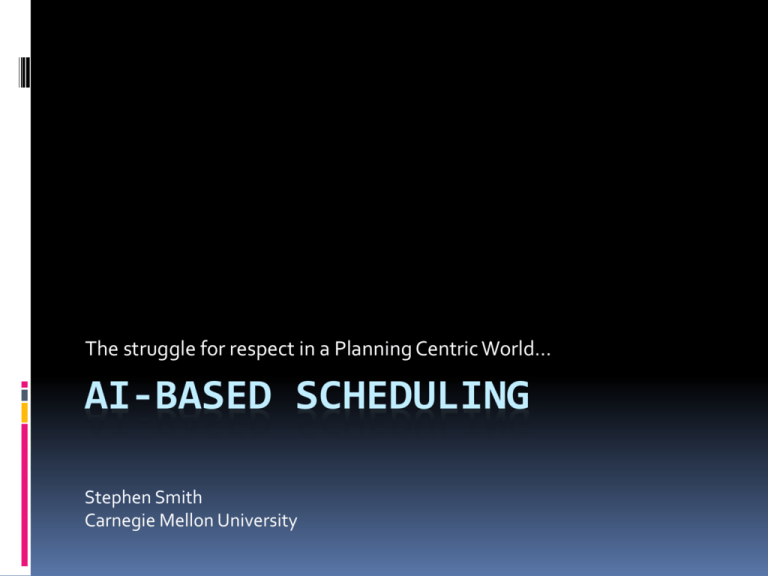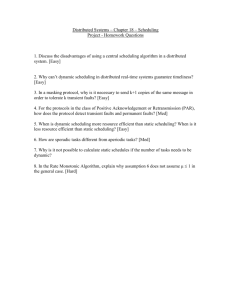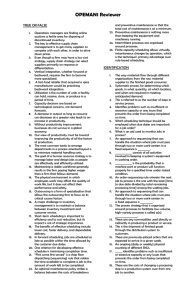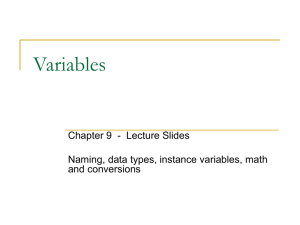Steve Smith suggests that Scheduling is no longer the Rodney
advertisement

The struggle for respect in a Planning Centric World… AI-BASED SCHEDULING Stephen Smith Carnegie Mellon University AI Scheduling – the struggle for respect … 1990s – Formation of research community The Period of Basic Disconnect Int. Conference on AI Planning Systems (AIPS) European Conference on Planning (ECP) Perspectives: There is a restricted class of planning problems concerned with synchronizing plans in time (mostly uninteresting from the standpoint of stacking blocks) Is scheduling about core techniques or about solving application problems? AI Scheduling – the struggle for respect … 2000-2002 – Recognition AIPS changed its name to Int. Conf. on AI Planning and Scheduling I got a paper accepted in ECP! Perspectives Increasing recognition that most real planning problems must worry about situating actions in time and making good use of scarce resources Consideration of integration frameworks But majority view of scheduling is really still as a black box component of a larger planning system AI Scheduling – the struggle for respect … 2003 onward – Age of Acceptance (?) Less work in the planning community on inventing planning techniques to solve scheduling problems At ICAPS 2004, we actually held a workshop on how planning might be used to solve scheduling subproblems More emphasis on common core technologies: temporal reasoning, search What is Planning and Scheduling? Planning - Synthesis of Scheduling - Assignment of action sequences to achieve goals (what to do) preconds clear(x) clear(y) on(x,?) stack(x,y) postconds ¬on(x,?) on(x,y) clear(?) preconds clear(x) on(x,?) putdown(x) postconds ¬on(x,?) on(x,t) clear(?) resources and times to actions to maximize performance (how and when) j i OP1,1 on(b,t) on(g,t) on(r,g) clear(b) clear(r) on(b,r) on(g,r) rd1 OP1,2 R1 st(i) + p(i) ≤ st(j), where p(i) is the processing time of op i i dd1 R2 R j st(i) + p(i) ≤ st(j) ∨ st(j) + p(j) ≤ st(i) rd(j) ≤ st(i) for each op i of job j rd2 putdown(r) OP2,1 stack(b,r) clear(g) OP1,3 dd2 OP2,2 R1 OP2,1 OP1,2 R2 OP1,1 stack(g,b) Minimize ∑ |c(j) - dd(j)| OP2,2 OP1,3 In recent years, the distinction has started to blur: Scheduling Planning resources durative actions, temporal reasoning maximizing # of goals achieved, # of soft constraints satisfied resource setup and state constraints action selection from pre-computed resource & process alternatives







